

By Ray Pride Pride@moviecitynews.com
Sundance Day 2: World-Premiering THE INTERRUPTERS
Until a magnificent movie in the middle of the evening, the highlight of a woozy first day of Sundance was the sight of Jeff Dowd, “The Dude,” pouring a sleeve of Emergen-C into his Sundance 11 Nalgene water bottle and advising his friends, “Zinc’s better.” A day late and sleep-deprived from the get-go, I had arrived at festival headquarters three-and-a-half minutes past 6pm and failed to get my i.d. Then again, serendipity of serendipities, I would have missed my pleasing Dowd half-second on the cramped, people-jammed Marriott mezzanine.
For the third year, many documentary premieres are at the Temple Theater, an active synagogue located a few miles out, at the outer reaches of Park City. (The entrance to the auditorium, with imposingly tall doors is in the last photo, below.) There’s no parking and because of its distance, it’s essentially reachable only by shuttle bus. Friday night was the world premiere of The Interrupters, directed by Steve James and produced by Alex Kotlowitz and James. At a 9pm start and a 161-minute running time, the Q&A was necessarily short, with four or five buses packed afterwards. But there was little of the bustle or confusion of the Tokyo-packed shuttles earlier in the evening at rush hour, but for lack of a lengthier description, a communal sense of “Wow.” The press kit (but not the film) offers the subtitle, “A Year In The Life Of A City Grappling with Urban Violence.” Chicago had become a symbol of violence in U. S. cities, and the director of Hoop Dreams and the author of “There Are No Children Here,” longtime friends, had found a subject to collaborate on after Kotlowitz’s 2008 New York Times Magazine story on a group called CeaseFire, founded to stem neighborhood violence in Chicago, largely through the intervention of violence “interrupters.” The 300 hours of footage shot across the following fourteen months have been distilled into emotionally pungent, uncommonly intimate work. The language is blunt and raw, and there are bursts of on-camera violence. The most horrifying moment, a video of a killing that was broadcast around the world, is judiciously blurred yet does not lack impact, especially when The Interrupters goes to the young man’s funeral and interviews his friends and family. But the film not only suggests, but demonstrates, through the heroic investment by its subjects, day to day, that the cycle of violence can be broken, and must be broken. In the words of one, the goal is “humility and not anger.” These are powerful stories of trust, transformation, and renewal of hope in Chicago streets and the hearts of America. The closing shot is elegiac, literally dazzling, as sunset ripples golden-orange across the Chicago skyline seen from the west, not the Lake, and yet it also says Chicago, and cities, and Chicagoans, and the hope for a better nation still stand, and stand strong. It’s a powerful image, evoking one last tear, at least from this longtime Chicagoan.
Then the night, coming down. Powder, gentle, from black night sky. Shuttles shudder, disgorge. The hiss of traffic on slush simmers down to nothing. Ahead of me, boots in prior bootprints. Following the example already set.
Photos by Ray Pride: Above, an emphatic introduction by programmer David Courier. Below: Steve James, James introducing Kotlowitz and the charismatic Ameena Matthews, one of the interrupters.









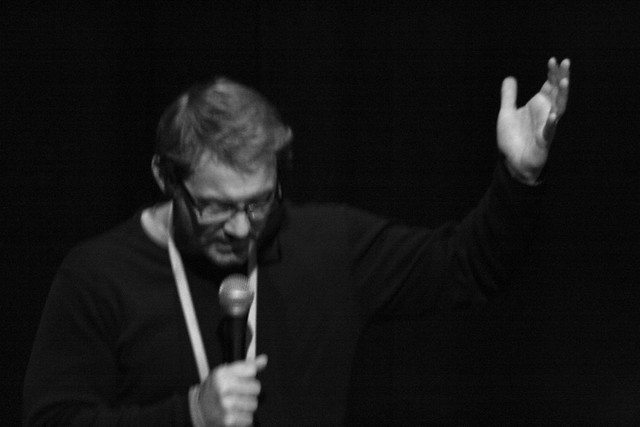
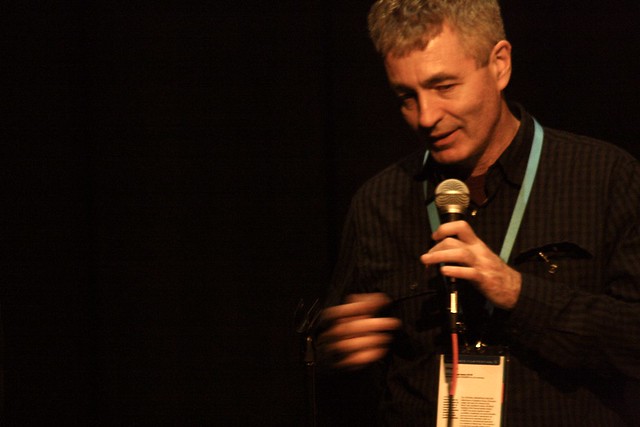
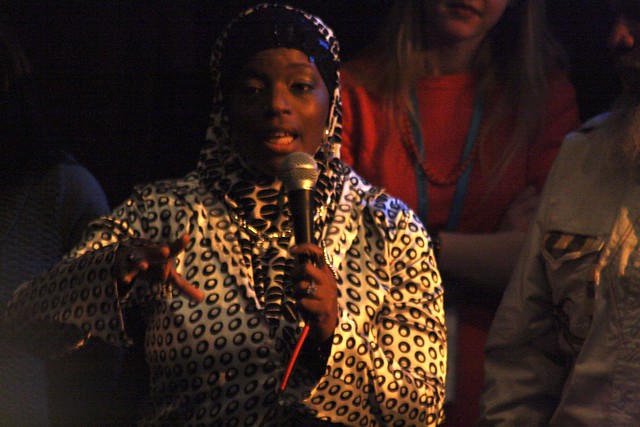
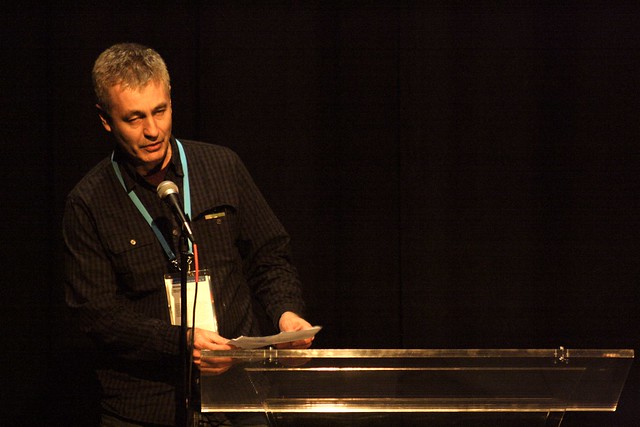
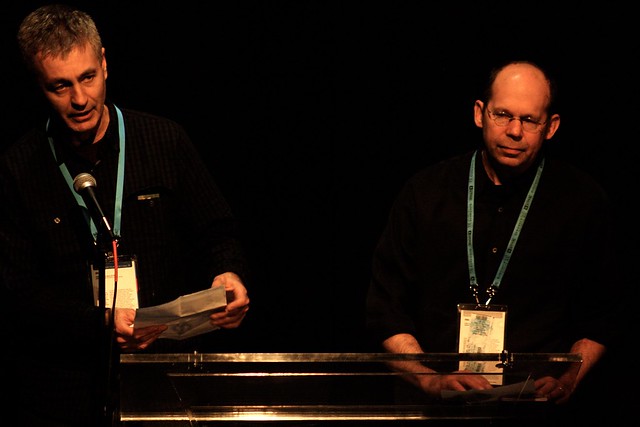
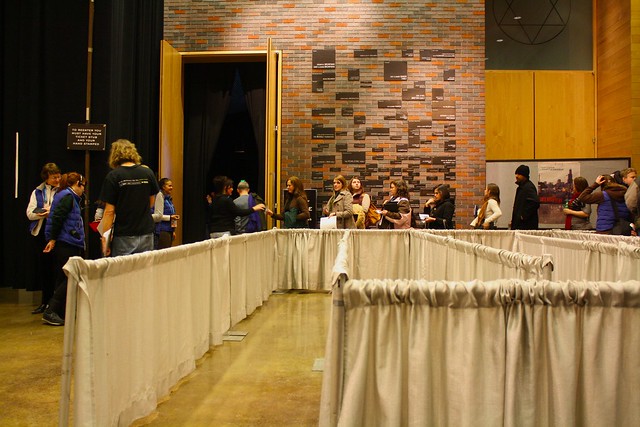





Great film; great review.
Make sure you go on with your great blog posts, I truly like them.